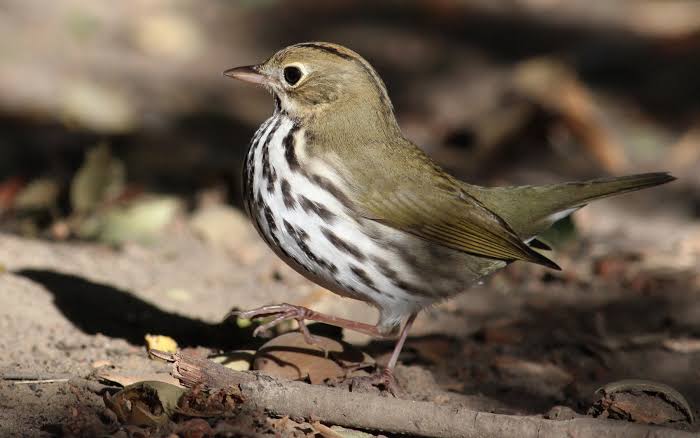The ovenbird is a small songbird of the New World warbler family. This migratory bird breeds in eastern North America and winters in Central America, many Caribbean islands, Florida and northern Venezuela. The primary mating and territorial song of the male Ovenbird is a rapid, resounding tea-cher, Tea-cher, TEA-cher growing louder over the first few repetitions, with 8 to 13 teacher phrases in all. Pitch, speed, and emphasis of syllables in the 2.5–4 second song vary among individuals. To our ears, some may sound more like tea-tea-tea, and others more like teachier, teachier. Males use a shorter song during chases, attacks, and copulation attempts. This song is longer and more varied, starting with a series of short notes, followed by a complex ramble of teacher phrases and ple-bleep notes. Males also give a distinctive flight song at dusk that differs from the typical song, though includes a few ‘teacher’ phrases in it. Males and females give several kinds of short call notes. Almost all are used only by one sex or the other. Distinctly male calls include ple-bleep and whink notes used in male-male encounters and in male-female chases. Female calls include a high tsip that may serve chiefly to identify her as a female in male-female interactions. A series of tsip calls after a male song associates a female with a particular male. The sexes share a chep call used for communication between them as well as in chases. Here is a link to their vocalizations.
